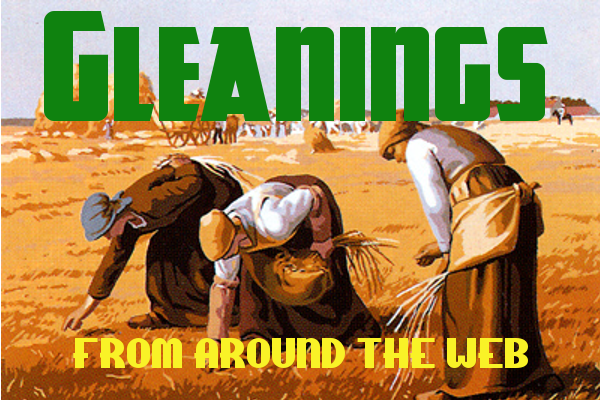Union Cab worker-owner and former USFWC board member Rebecca Kemble recently sat down for an interview with the UK worker co-op podcast PUNCHCARD, to deliver a cautionary tale about the effects of foundation money on movement organizations.
Then, Jonathan Tarleton writes about two Brooklyn housing co-ops that both considered de-mutualization: one decided to remain a cooperative, while the other sold to private buyers. The differences in how these two co-ops approached this decision, and the different outcomes in the two cases, provide a useful case study for avoiding cooperative de-mutualization.
A Cautionary Tale From The US Federation of Worker Co-ops
by PUNCHCARD
Rebecca Kemble: I just became convinced that we have to go back to the basic unit of cooperativism, which is human beings cooperating with each other based on trust, and moving at the speed of trust. You understand that those relationships are the things that will enable us to take care of each other and ourselves and our families as these crises in climate and economy come crashing down on us. I think having national organizations is important, but the life of them really has to be at these manageable sized local groups, local communities.
A Tale of Two Co-ops
by Jonathan Tarleton
Turbo-charged by potential profit and cut through with the ethics of consuming the public goods that support us, the stories of the fraught privatization fights within these co-ops—seen at eye-level from the perspective of the residents—reveal themselves to be deeper than simple morality tales of profiteering vs. altruism, more complex than a battle between selfish privateers and idealistic defenders of the public realm. Rather, the sides that cooperators take in these community-shredding debates, how they construct their arguments—how they justify their positions to themselves and the pitches they make to sway others—all hold key information on the fervent contest over space across the country.
All the ways of getting lost in meetings
Ted Rau (Medium) — A perfectly planned meeting is great. We line up the agenda items, and appoint someone responsible — the meeting is a walk in the park. But some things we can’t plan. Because not everything is predictable. We might hear a report and discover a big issue. We might want to make a decision but get stuck in the middle. Then, we find ourselves in a detour…
How a worker cooperative is mitigating the stray animal crisis in Texas
Nation of Change — “Here in Texas, we have a terrible situation with strays and rescues,” says Melody Shannon, founder of the Pet Care Co-op in Houston. “[The area is] overrun with animals, so we need a lot of out-of-state help. A lot of these issues come from the fact that our fosters have been completely abandoned. The animal rescues don’t know what to do. They’re inundated with endless bills,” which results in a lack of resources for advocacy...
Textile co-ops paying the price of Milei’s austerity in Argentina
Co-op News — The recent challenges have led many co-ops to merge or rent spaces together to cut costs. But some co-ops are losing members, including Serrano Rocha’s co-op, which lost 10 members, with just 15 remaining. Some went back to operating from home, others turned to jobs in the construction sector or went back to selling on the streets. She hopes all textile co-ops can come together to operate from a single location, which would help reduce costs...
Cooperatives banding together for a better nation
Manila Bulletin — The Philippine Chamber of Cooperatives was created to further increase the opportunities that cooperatives afford its members. “The Philippine Chamber of Cooperatives (Coop Chamber) was created to have more focus [on] cooperative development, especially related to advocacy,” said Coop Chamber President Noel Dalang Raboy, a member of CLIMBS Life and General Insurance Cooperative, who sat down for the interview alongside Coop Chamber Executive Director Edwin Phi Bustillos...
Barcelona residents form cooperatives to address housing crisis
Reuters (YouTube) — Amid Spain’s housing crisis, marked by rising prices and increasing difficulties for young people to enter the property market, co-living alternatives like the Cirerers cooperative in Barcelona are gaining popularity as a more affordable option.
Co-op Circle Town Hall: Government Relations
NCBA CLUSA — We unpacked our new Cooperative Business Playbook, previewed key advocacy priorities for 2025, and considered how recent federal executive actions could impact co-ops...
Like what you find on GEO?
Make a Donation Today!
Your tax-deductible contribution ensures that GEO can continue to provide independent grassroots content about the cooperative and solidarity economy movements.
Got something to say?
Let us know. Send your comments, suggestions, rants and article submissions to editors@geo.coop.
Follow us on Social Media
Mastodon: social.coop/@GEO_Collective
FB: facebook.com/GEOCollective
Twitter: twitter.com/@GEO_Collective
Instagram: instagram.com/grassrootsecon
Our mailing address is:
Grassroots Economic Organizing
P.O. Box 115
Riverdale MD 20738-0115




